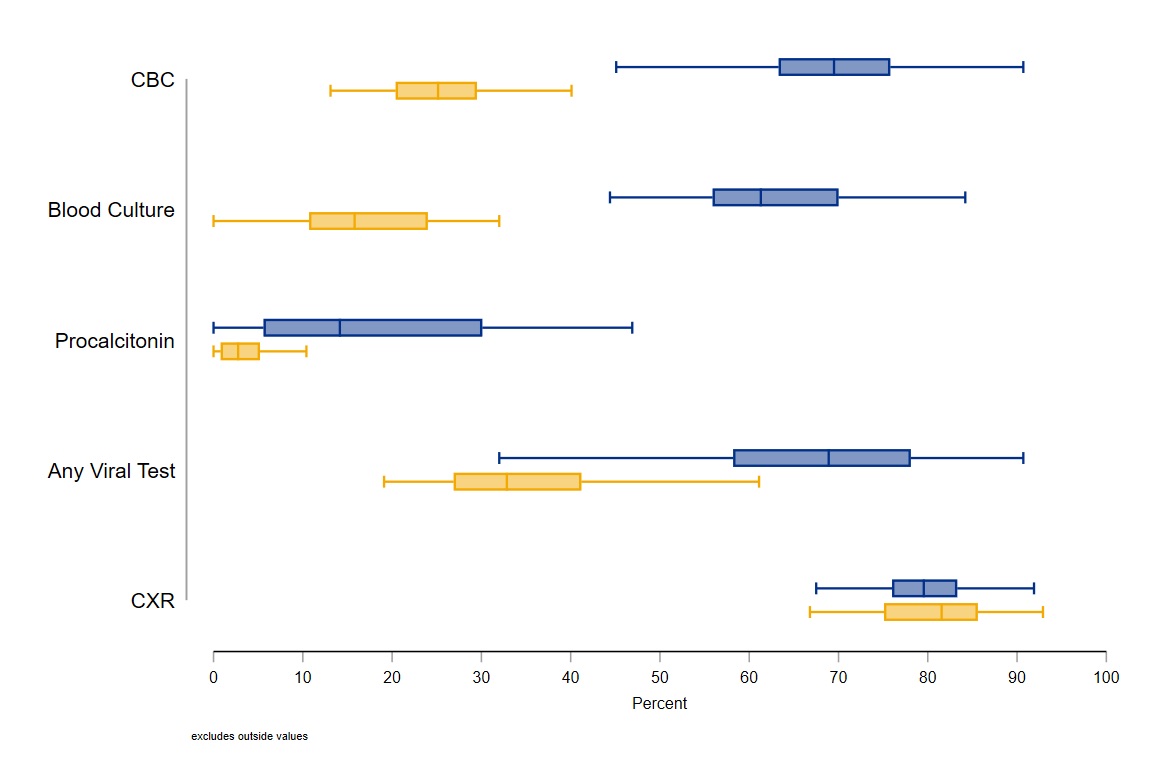Emergency Medicine: All Areas
Emergency Medicine 3
46 - Diagnosis and management of pneumonia in infants less than 90 days of age
Publication Number: 46.112
.jpg)
Janine P. Amirault, MD (she/her/hers)
Resident
Boston Children's Hospital
Boston, Massachusetts, United States
Presenting Author(s)
Background: Pneumonia guidelines published by the Infectious Disease Societies of America in 2011 pertain to children older than 3 months of age. Little information exists regarding the diagnostic evaluation, management and outcomes of infants less than 90 days with pneumonia.
Objective: The aim of this study is to address gaps in knowledge regarding the management of infants with pneumonia by describing evaluation, management and outcomes of infants < 90 days of age with CAP, and comparing them to older children for whom guidelines exist.
Design/Methods:
In this large retrospective multicenter cohort study, we compared infants < 90 days of age diagnosed with pneumonia across 38 US children’s hospitals from 2016 to 2021 to children 90 days to 5 years of age. We evaluated whether differences exist in patient characteristics, diagnostic testing, antibiotic treatment and outcomes between young infants and older children. Additionally, we assessed seasonal variability and trends over time in pneumonia diagnoses by age group.
Results: Among 109,796 children diagnosed with pneumonia, 3,128 (2.8%) were < 90 days of age. Compared to older children, infants < 90 days had more laboratory testing performed (88.6% vs. 48.8%, P< 0.001; median number of laboratory tests 4 (IQR: 2-5) vs. 0 (IQR: 0-3), respectively), with wide variation in testing across hospitals. CXR utilization did not differ by age group. Infants < 90 days were more likely to be hospitalized and require respiratory support than older children. Seasonal variation was observed for pneumonia encounters in both age groups.
Conclusion(s): Infants < 90 days with pneumonia were more likely to undergo laboratory testing, be hospitalized, and require respiratory support than children 90 days to 5 years of age. Given these differences, pneumonia guidelines directed at children greater than 90 days of age may not apply to young infants. 
.jpg)
.jpg)
